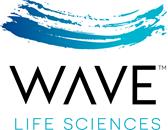SERPINA1 program for alpha-1 antitrypsin deficiency (AATD) with ADAR editing: In November 2020, Wave announced that its first ADAR editing program would be for AATD, which will target the G-to-A disease-causing mutation in mRNA coded by the SERPINA1 Z allele. By correcting the single RNA base mutation, ADAR editing may provide an ideal approach for increasing circulating levels of wild-type AAT protein and reducing aggregation in the liver, thus simultaneously addressing both the lung and liver manifestations of the disease.
In a primary hepatocyte SERPINA1 Z cell model, Wave demonstrated that editing the Z transcript back to wild-type restored native protein folding and secretion from hepatocytes. Wave expects to deliver in vivo data supporting the continued development of its AATD program in the first half of 2021.
Central nervous system (CNS) programs in collaboration with Takeda: Wave is leveraging learnings from PRISM to design additional stereopure oligonucleotides with optimized profiles for CNS indications, including in Alzheimer’s disease, Parkinson’s disease and others, as part of its ongoing collaboration with Takeda. Wave is utilizing PN backbone chemistry modifications to produce compelling in vivo data and progress multiple preclinical programs.
About Huntington’s disease
Huntington’s disease (HD) is a debilitating and ultimately fatal autosomal dominant neurological disorder, characterized by cognitive decline, psychiatric illness and chorea. HD causes nerve cells in the brain to deteriorate over time, affecting thinking ability, emotions and movement. HD is caused by an expanded cytosine-adenine-guanine (CAG) triplet repeat in the huntingtin (HTT) gene that results in production of mutant HTT (mHTT) protein. Accumulation of mutant HTT causes progressive loss of neurons in the brain. Wild-type, or healthy, HTT (wtHTT) protein is critical for neuronal function and suppression may have detrimental long-term consequences. Approximately 30,000 people in the United States have symptomatic HD and more than 200,000 others are at risk for inheriting the disease. There are currently no approved disease-modifying therapies available. Between Wave’s three investigational molecules, the company has the potential to provide allele-selective therapeutic options for up to 80% of people with HD.
About amyotrophic lateral sclerosis and frontotemporal dementia
Amyotrophic lateral sclerosis (ALS) is a fatal, neurodegenerative disease in which the progressive degeneration of motor neurons in the brain and spinal cord leads to the inability to initiate or control muscle movement. People with ALS may lose the ability to speak, eat, move and breathe. ALS affects as many as 20,000 people in the United States.
Frontotemporal dementia (FTD) is a fatal, neurodegenerative disease in which progressive nerve cell loss in the brain’s frontal lobes and temporal lobes leads to personality and behavioral changes, as well as the gradual impairment of language skills. It is the second most common form of early-onset dementia after Alzheimer’s disease in people under the age of 65. FTD affects as many as 70,000 people in the United States.
ALS and FTD can be caused by mutations in the C9orf72 gene, which provides instructions for making protein found in various tissues, including nerve cells in the cerebral cortex and motor neurons. In the U.S., mutations of the C9orf72 gene are present in approximately 40% of familial ALS cases and 8% to 10% of sporadic ALS cases. In FTD, the mutations appear in 38% of familial cases and 6% of sporadic cases.
About Duchenne muscular dystrophy (DMD)
DMD is a fatal X-linked genetic neuromuscular disorder caused predominantly by out-of-frame deletions in the dystrophin gene, resulting in absent or defective dystrophin protein. Dystrophin protein is needed for normal muscle maintenance and operation. Because of the genetic mutations in DMD, the body cannot produce functional dystrophin, which results in progressive and irreversible loss of muscle function, including the heart and lungs. Worldwide, DMD affects approximately one in 5,000 newborn boys.
About PRISM™
PRISM is Wave Life Sciences’ proprietary discovery and drug development platform that enables genetically defined diseases to be targeted with stereopure oligonucleotides across multiple therapeutic modalities, including silencing, splicing and editing. PRISM combines the company’s unique ability to construct stereopure oligonucleotides with a deep
